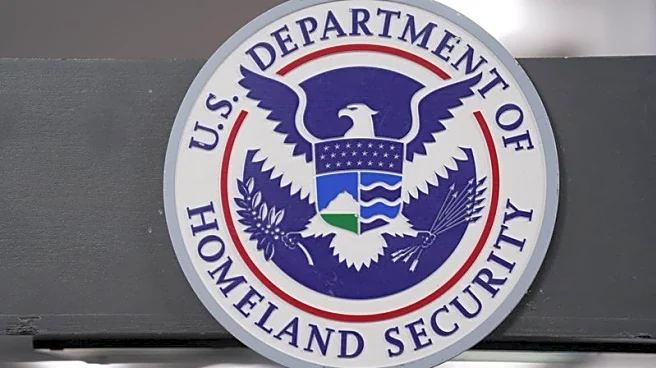What's Happening?
The government has proposed changes to the Human Medicines Regulations 2012 that would allow pharmacies to offer a wider range of off-site vaccination services. Published in a consultation document on September 5, 2025, these proposals aim to enable pharmacies to provide all vaccinations against vaccine-preventable diseases, thereby increasing access and supporting public health. Currently, pharmacies can administer COVID-19 and flu vaccines at pop-up sites under a patient group direction (PGD), a practice legalized during the COVID-19 pandemic. The proposals suggest making permanent the ability to use an extended workforce to supply and administer vaccinations under a PGD, replacing a temporary amendment that allowed pharmacy technicians to deliver vaccines under a national protocol. Additionally, a vaccine group direction (VGD) is proposed to allow non-registered healthcare workers to deliver parts of the vaccination process under supervision. This could initially be applied to high-volume services for COVID-19 and influenza, with potential expansion to other programs like shingles and RSV vaccinations.
Why It's Important?
The proposed changes are significant as they could enhance the role of community pharmacies in public health by expanding vaccination services. This move is expected to increase vaccination uptake, particularly in underserved areas, and provide more tailored services to meet population needs. By allowing pharmacies to offer off-site vaccinations, the proposals align them with other healthcare providers, potentially improving access and convenience for patients. The permanent inclusion of an extended workforce could streamline vaccination processes and build on successful practices from the COVID-19 pandemic. This expansion could also relieve pressure on traditional healthcare settings, allowing for more efficient distribution of vaccines and better preparedness for future health challenges.
What's Next?
The consultation on these proposals will close on November 28, 2025. Stakeholders, including pharmacy associations and healthcare providers, are expected to provide feedback. If implemented, pharmacies could begin offering expanded vaccination services, potentially starting with high-demand vaccines like COVID-19 and influenza. The success of pilot programs, such as the MMR catch-up vaccinations, will likely influence the rollout of these services. The government and NHS will need to ensure adequate training and resources for pharmacy staff to handle increased vaccination responsibilities. Monitoring and evaluation will be crucial to assess the impact on vaccination rates and public health outcomes.
Beyond the Headlines
The expansion of pharmacy-based vaccination services raises ethical and logistical considerations. Ensuring equitable access across different regions and populations will be essential to avoid disparities. The reliance on non-registered healthcare workers for vaccination delivery may require careful oversight to maintain safety and efficacy standards. Long-term, this shift could redefine the role of pharmacies in healthcare delivery, positioning them as key players in preventive health strategies. The integration of pharmacies into broader public health initiatives could foster community engagement and trust in vaccination programs.











